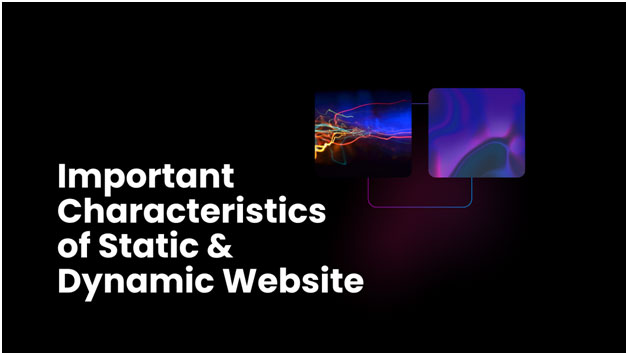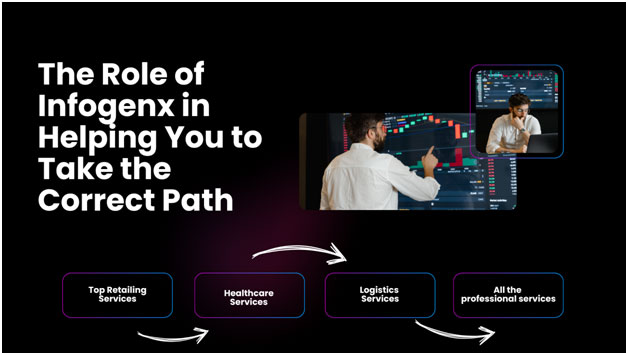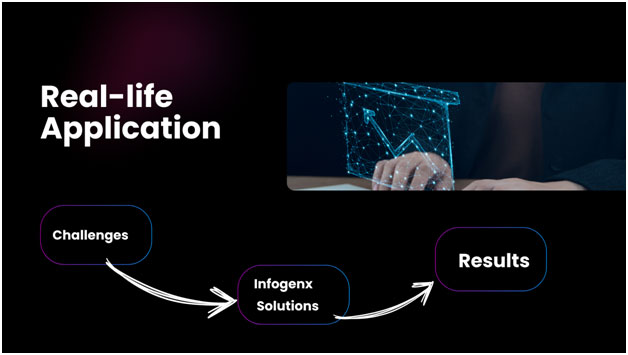Static and Dynamic Websites: What is the Best Suited to Your Business?

Customers will most likely be interacting with your brand through your site. As a startup, enterprise or even SME, your success on the web can be heavily influenced by the right choice you make at the early stages of Web Development. One of the most important choices you will need to make is the type of site you are going to develop, a Static or Dynamic site.
Both are good and the choice will depend on your business, technical requirement, content action plan and budget.
To allow you to make the right choice, in this guide, we will deconstruct the key differences, as well as advantages and use cases of each type of the website’s development.
Click Here to learn how Infogenx can assist you with Web Development?
A Static Website is one which is composed of fixed information coded in HTML, CSS and occasionally JavaScript. All the visitors on the site will be shown the same content unless the developer manually updates the files.

- Storing and Delivery of pages is in an as-is manner
- No back-end programming or database connectivity
- Further speed in loading and improved security
- Reduced development and hosting expenses
- Brochure websites
- Portfolios
- Landing pages of small business
- Microsites dedicated to an event or campaign
A Dynamic Website gets information on-demand and is updated depending on how users interact with it, their preferences, or server-side input. They are server-side languages such as PHP, Python or Node.js and are usually integrated with a content management system (CMS) or a database.
- On-the-fly content generation is provided
- Individualised user experiences
- Linked to databases and backends
- It is simple to scale and update with no technical skills
- E-commerce stores
- News and on blogs
- SaaS dashboards
- Frequently updated content enterprise websites
| Feature | Static Website | Dynamic Website |
|---|---|---|
| Development Complexity | Simple | Complex |
| Performance | Quicker | Real time slower |
| Content Updates | Manual (Developer is required) | Simple through CMS |
| Security | Very Safe (less chances of attack) | Requires tighter measures of security |
| Cost | Lower | More (because of backend systems) |
| Scalability | Limited | Very Scalable (Cloud or API enabled) |
| Interactivity | Minimal | High (perfect in the contemporary UX/UI) |
- You require a simple, informative web presence
- Your content does not change very often
- Performance and speed are the key priorities
- You do not have a lot of money to spend
- You have no user login, real time updates, and databases
- You are going to operate an e-business store
- What you have is dynamic (blog, news, products)
- You require log-in, user profiles or forms
- The issue of personalization and automation is important
- You desire to grow and merge with others systems
✅ Static Websites:
- Quick loading speed = improved Google performance
- Less redirects or broken links
- More easily cached and indexed
✅ Dynamic Websites:
- It is more convenient to include structured metadata
- Easier to update and blogging strategies
- Dynamic sitemaps, categories and filters are supported
💡 Pro Tip: In case of a dynamic web site, make pages SEO friendly and load quickly. Make use of caching, CDN and efficient queries.
The current generation of websites employs a hybrid solution that combines both the static and dynamic features with the technologies such as:
- Jamstack (JavaScript, APIs, Markup)
- Static site generators and Headless CMS
- Next.js or Nuxt.js for hybrid rendering
It provides the speed and scalability of a static site and the interactivity of a dynamic one in one package, ideal to companies looking to have all three.
We know at Infogenx that there is no one size fits all approach to web development.

In our Web Development Services we include:
- Strategic Consultation: Static, dynamic or hybrid?
- Custom websites design & development
- Dynamic E-commerce solutions
- WordPress, Webflow, Drupal websites, which are based on CMS.
- CRMs, APIs and business platform integration
- SEO-friendly architecture that is optimized on mobile devices
- Continuous support and hosting services
We have provided the top retailing, logistics, healthcare and professional services to clients with the powerful web experiences that not only fit your business, but also expand with it.
Check Infogenx Web Development Service to transform ideas into powerful, scalable applications that fuel business growth!
A free consultation on web development can help you make the right choice with the help of our experts.
👉 Book Your Free Consultation
| Purpose | Static Website | Dynamic Website |
|---|---|---|
| Languages | CSS, JavaScript, and HTML | PHP, Python, Node.js and ASP.NET |
| Frameworks | Hugo, Jekyll & Eleventy | Laravel, Django, express.js |
| CMS | Forestry, Netlify CMS | WordPress, Drupal, Shopify |
| Hosting | GitHub Pages, Vercel, Netlify | AWS, DigitalOcean, Azure |
| Database | Not required | MySQL, MongoDB, postgresql |
Client: An Indian based logistics company (SME level)
The Issue: Static site with no backend was difficult to update, did not have contact forms and tracking of the live shipment.

Infogenx Solution:
- Transferred to an interactive site that has CMS to update contents easily
- Added the customer login and real time tracking feature
- Created custom dashboards in React + Node.js
- APIs which are connected to their own inventory system
Results:
- ✅ 3x increase in user engagement
- ✅ 60 percent reduction of support tickets
- ✅ Enhanced search ranking (SEO) of 45 percent
Click Here to learn how Infogenx unlocks the full potential of web development by mastering the server-side logic that powers modern applications.
- Q1. Is it possible to change it later to a dynamic site?
Yes! Infogenx can transform your static site to a dynamic scalable site with a suitable content migration and backend configuration. - Q2. Is it static or dynamic that is more secure?
Static websites are automatically more secure since they do not interact with the database. Dynamic sites, however, can be protected through firewalls, SSL, and secure coding. - Q3. What is superior in terms of SEO?
Both rank high. Static sites will be quick to load; dynamic sites will have new information. Either one can be done well with structure. - Q4. Which one is mobile-friendly?
Both are mobile friendly. Infogenx makes all our sites, whether static or dynamic, optimized to be mobile friendly.
When you want quick, low-level maintenance, and economical, then static could be the solution. However, when you require a high degree of flexibility, real-time and personalization, then dynamic is your optimal choice.
At Infogenx, we assist you to make decisions and create high-performance websites that are designed according to your needs. Regardless of a landing page or a comprehensive platform, web development experience guarantees your proper investment.
🎯 Are You Prepared to Construct a Powerful Web Site?
Let’s talk.
💡 Infogenx is your web development partner of scalable, secure, and stunning websites.
👉 Claim Your Free Consultation
Thank you! You have subscribed to our newsletter.

